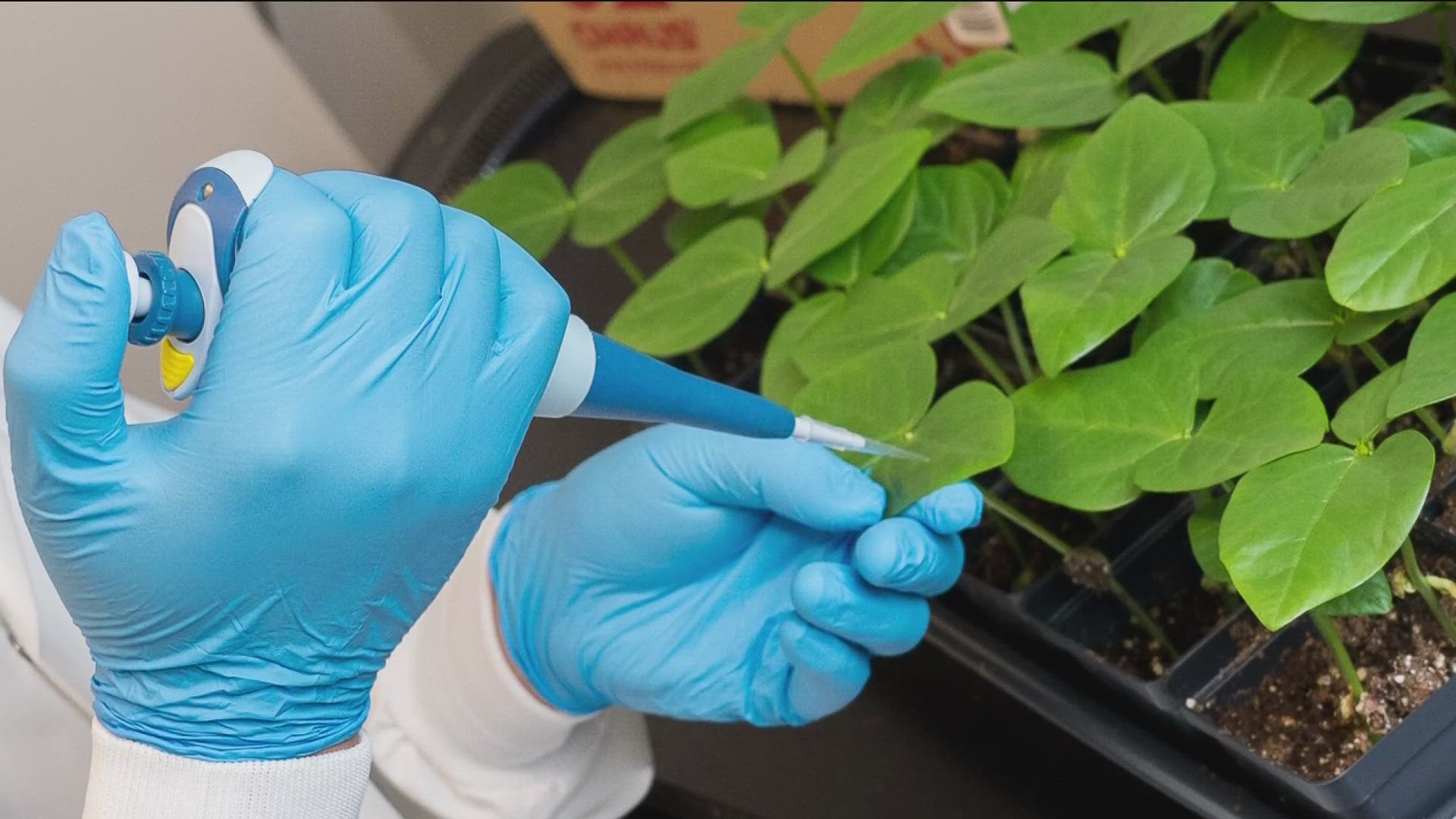SAN DIEGO — New research from UC San Diego has found an innovative new treatment to fight cancer. Researchers found a plant virus to be highly effective in preventing the growth of cancerous tumors.
The treatment uses nanoparticles derived from the cowpea mosaic virus, which naturally infects black-eyed pea plants.
“We looked at breast cancer, melanoma, as well as colon cancer... very challenging to treat scenarios," said Nicole Steinmetz, a professor of nanoengineering and director of the Center for Nano-Immunoengineering at UC San Diego.
The treatment is made up of the cowpea mosaic plant virus and has shown remarkable success in improving survival rates and stopping the growth of cancerous tumors.
“What we discovered is that we can use it as an immune modulator to stimulate the patient’s immune system and allure the immune system to fight off disease,” said Steinmetz.
The plant virus, which is non-infectious to humans and animals, works if injected directly into tumors, but in recent studies, researchers found an easier way to administer the treatment - a shot.
“The recent study that was published is exciting because we’re showing that we can give these particles, these plant viruses, systematically by an intravenous administration and this was done in a mouse model," said Steinmetz.
RELATED: UC San Diego School of Medicine uses AI to predict which drugs to use to treat cancer patients
When given the treatment, the patient's immune system recognizes the virus as a foreign agent, which triggers an immune reaction against the tumor.
The new method proved to be successful even in mice with harder-to-reach tumors or metastatic cancer.
“We show that if we just give a single treatment with this plant treatment after surgery, we can boost the immune system to prevent this outgrowth of metastatic disease," she added.
Mice given the nanoparticles had the highest survival rate and the smallest tumors.
“The beauty of it is the simplicity, how it works. Our immune system has evolved to eliminate disease to keep a healthy state in the body… and so what we’re doing by giving the plant virus is reactivating what the body has evolved to do – the body wants to eliminate tumors and metastatic disease," added Steinmetz.
Currently, the team is conducting clinical trials with canine patients. They're working with vet clinics across the U.S. and Europe and say the results have been successful.
The team has received funding from the National Institute of Health as well as the American Cancer Society and they hope to move the research forward and conduct safety studies through human clinical trials.
WATCH RELATED: UC San Diego doctors research new COVID-19 symptoms

